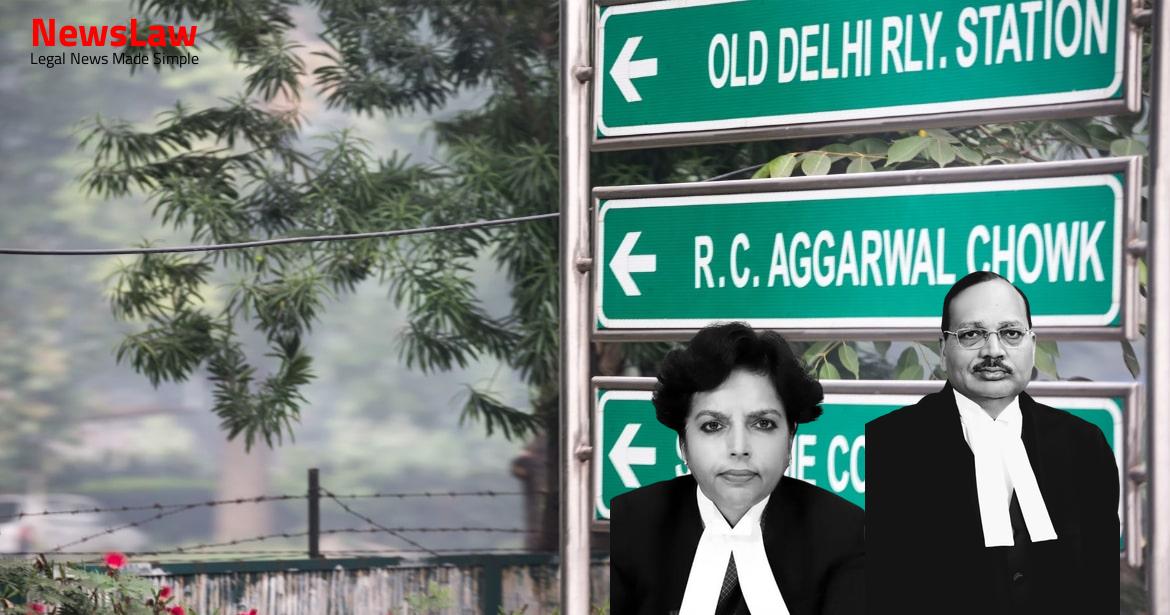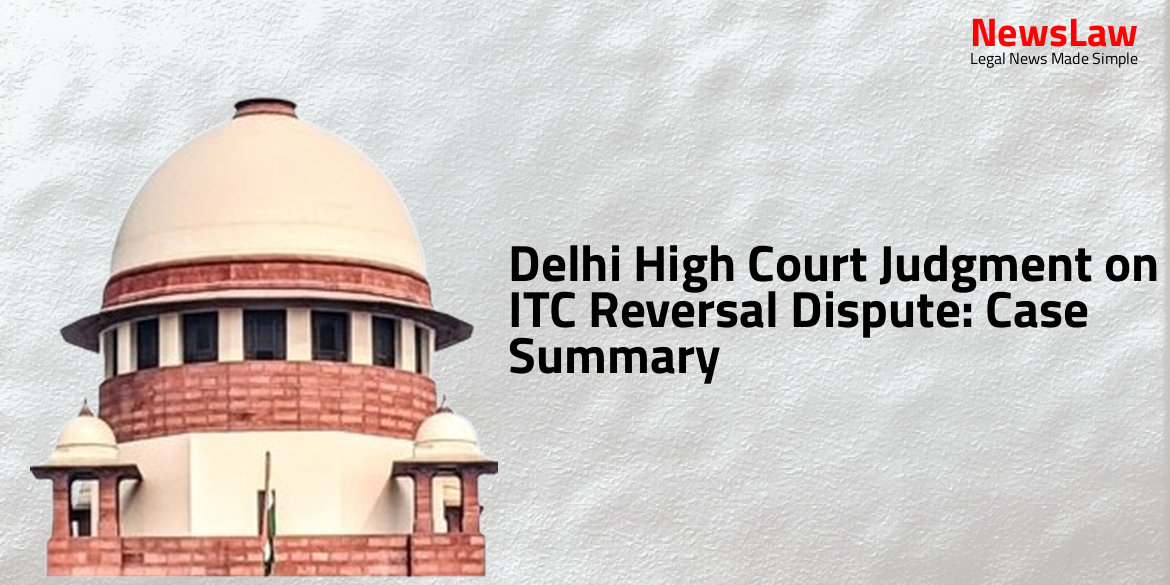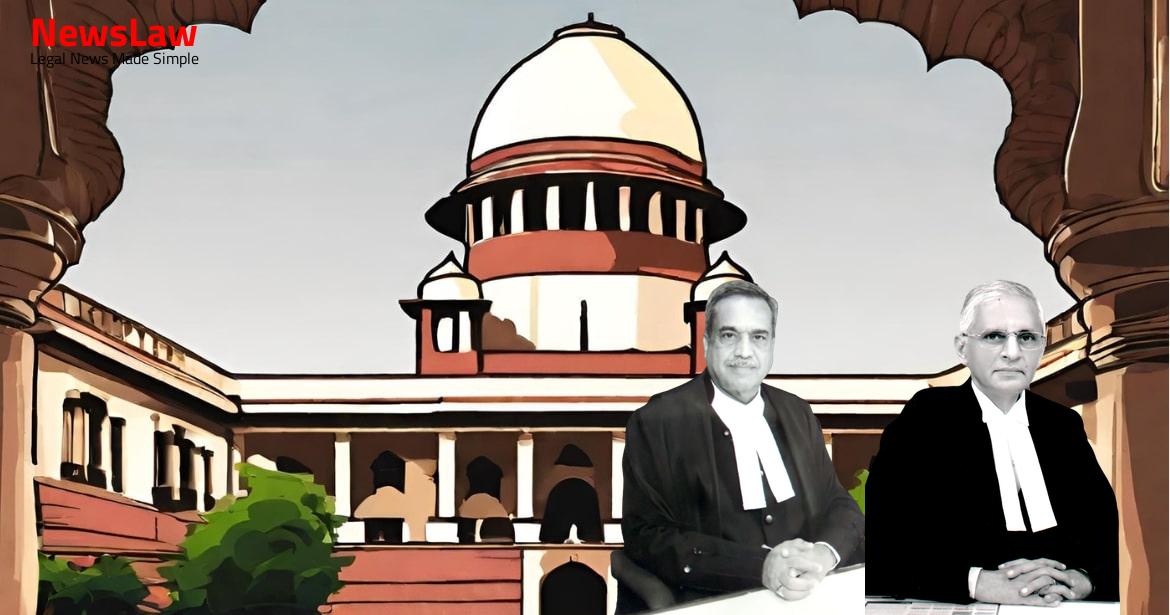Explore the detailed legal analysis conducted by the Court regarding the interpretation of contract clauses in an arbitration award. The case delves into complex issues such as the essence of time in contracts, imposition of liquidated damages, and parties’ entitlement to extensions. The Court’s in-depth legal scrutiny sheds light on the nuances of contractual obligations and remedies available under Indian contract law.
Facts
- ONGC issued purchase orders to Remi Metals for the supply of seamless steel casing pipes.
- ONGC deducted liquidated damages from Remi Metals’ bills.
- Remi Metals filed claims for refund of liquidated damages, customs duty reimbursement, interest on delayed payments, amount short received under invoices, failure to furnish ‘C’ forms, handling charges payable, and wrongful reduction of price for balance under a specific purchase order.
- Arbitral Tribunal framed 17 issues, including whether time was the essence of the agreement for supply under the purchase orders.
- Delivery period specified in the purchase orders was within 16 to 40 weeks from the date of the order.
- AO No.472 by ONGC was allowed, and AO No.466 by Remi Metals was dismissed.
- Extensions were granted in the delivery period, which Remi Metals accepted.
- Global tender floated by ONGC for the purchase of seamless steel casing pipes.
- Liquidated damages were not granted due to time not being of the essence in the contract.
- ONGC extended the delivery period without levying any liquidated damages.
- The District Judge modified the arbitration costs from Rs. 25 lakhs to Rs. 9,40,000/- and excluded certain losses from the total computation.
- The High Court criticized the conclusion that ONGC had to prove loss suffered before recovering damages.
- ONGC estimated four categories of tangible losses: revenue loss, loss due to higher grade casing, loss due to transportation, and loss due to foreign exchange fluctuation.
- The District Court upheld the cost of arbitration decree.
- ONGC filed Section 34 petition claiming the award was not in line with the contract.
- ONGC was entitled to retention of a specific amount from the total liquidated damages recovered.
- ONGC estimated total losses to be Rs. 3,80,64,830/-.
- ONGC was not entitled to claim losses during the extended delivery period where liquidated damages were waived.
- The contract provisions indicated that time was not the essence of the contract.
- The High Court found errors in the construction of the contract regarding the essence of time.
- The material supply was not for any specific or urgent purpose according to the global tender.
Also Read: Electoral Malpractices in Mayor Election
Issue
- The issue at hand is whether the impugned judgment correctly set aside the arbitration award in favor of ONGC.
- The Arbitral Tribunal emphasized that merely having a time clause in the contract does not solely determine the issue; rather, all contract terms need to be considered.
- Key questions include: whether ONGC was justified in recovering specific liquidated damages, whether the Claimant was entitled to extension without liquidated damages, if the Claimant is entitled to interest on delayed payment, and if ONGC was entitled to impose liquidated damages based on the entire value of the Purchase Orders.
Also Read: Balancing Power and Transparency: Electoral Bonds Struck Down, Disclosure Mandated
Arguments
- In the argument presented by Mr. Shyam Diwan, it is stated that the view taken by the Arbitral Tribunal was reasonable and based on the actual loss sustained by ONGC.
- The interpretation of law and facts in the award is considered as reasonable and plausible, supporting the Arbitral Tribunal’s decision.
- Mr. Shyam Diwan further emphasized that time was not a critical factor in the contract, as it allowed for extensions and liquidated damages.
- ONGC’s waiver of liquidated damages in previous extensions precludes them from claiming it in subsequent extensions, according to Mr. Shyam Diwan.
- It is advised that the Court should not casually interfere with or set aside awards, unless the award is deemed patently illegal.
- ONGC’s counsel argued that imposition of liquidated damages was upheld in a previous case.
- ONGC contended that unliquidated damages cannot be awarded in a contract with provision for liquidated damages.
- It was pointed out that time was of the essence in the contract, as indicated with every extension granted.
- The award was criticized for interpreting contractual clauses unreasonably.
Also Read: Recall of Resolution Plan Approval: Legal Analysis
Analysis
- Section 34 of the Act specifies limited grounds for setting aside an arbitral award.
- The grounds include the subject-matter of the dispute not being capable of settlement by arbitration or the award being in conflict with public policy.
- The recovery of liquidated damages for delays in contract execution is governed by the Indian Contract Act.
- Section 74 of the Indian Contract Act allows for compensation in case of breach of contract with a penalty stipulation.
- The Arbitral Tribunal’s determination that ‘time not being the essence of the contract’ was considered legitimate.
- Public policy as defined in Section 7(1)(b)(ii) of the Foreign Awards Act pertains to the public policy of India and not of any other country.
- Courts should not interfere with arbitral awards unless there is clear perversity in the award without any alternative interpretation that could sustain it.
- Enforcement of a foreign award can be refused if it is contrary to the public policy of India, which includes fundamental policy, interests, justice, and morality.
- The term ‘public policy of India’ in Section 34 should be interpreted broadly to include fundamental policy, interests, justice, morality, and also if the award is patently illegal.
- Challenges to an arbitral award are limited to the grounds outlined in Section 34 of the Arbitration Act.
- Illegality of the award must be substantial and go to the root of the matter to be considered against public policy.
- The Arbitral Tribunal correctly interpreted the contractual clauses related to extension procedures and imposition of liquidated damages, indicating that ‘time was not the essence of the contract’.
- The Arbitral Tribunal’s decision to impose damages based on actual loss, considering the waiver of liquidated damages and absence of precise language allowing for re-imposition of liquidated damages, aligns with the provisions of Section 55 of the Indian Contract Act.
- Other aspects of the award do not warrant interference by the Court, as per the decision in the case of Project Director, National Highways No.45E and 220, National Highways Authority of India v. M. Hakeem.
- The High Court and the District Court exceeded their jurisdiction under Sections 34 and 37 of the Arbitration Act.
Decision
- The order of the High Court and District Court’s interference is set aside.
- The award of the Arbitral Tribunal is upheld.
- Parties are to bear their own costs.
- Civil Appeal Nos. 2826-2827 of 2016 are allowed.
- Civil Appeal arising out of SLP (C) 19203 of 2012 is disposed of accordingly.
Case Title: WELSPUN SPECIALTY SOLUTIONS LIMITED THROUGH ITS AUTHORISED REPRESENTATIVE Vs. OIL AND NATURAL GAS CORPORATION LTD. THROUGH ITS COMPANY SECRETARY (2021 INSC 724)
Case Number: C.A. No.-002826-002827 / 2016



